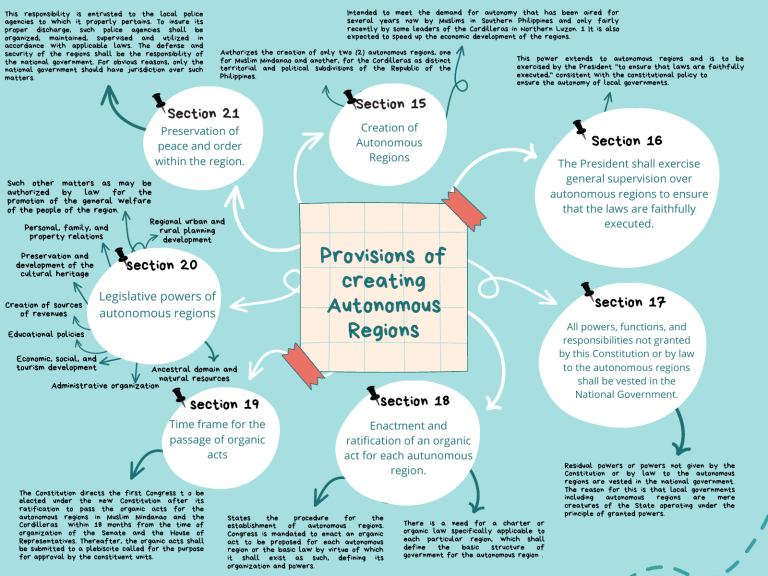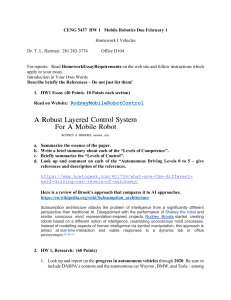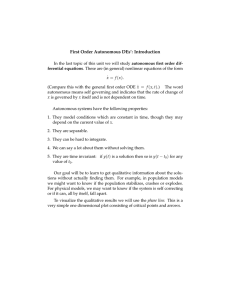
This responsibility is entrusted to the local police agencies to which it properly pertains. To insure its proper discharge, such police agencies shall be organized, maintained, supervised and utilized in accordance with applicable laws. The defense and security of the regions shall be the responsibility of the national government. For obvious reasons, only the national government should have jurisdiction over such matters. Intended to meet the demand for autonomy that has been aired for several years now by Muslims in Southern Philippines and only fairly recently by some leaders of the Cordilleras in Northern Luzon. 1 It is also expected to speed up the economic development of the regions. Authorizes the creation of only two (2) autonomous regions, one for Muslim Mindanao and another, for the Cordilleras as distinct territorial and political subdivisions of the Republic of the Philippines. Section 21 Preservation of peace and order within the region. Such other matters as may be authorized by law for the promotion of the general welfare of the people of the region. Regional urban and Personal, family, and rural planning property relations development Preservation and development of the cultural heritage Creation of sources of revenues This power extends to autonomous regions and is to be exercised by the President "to ensure that laws are faithfully executed," consistent with the constitutional policy to ensure the autonomy of local governments. Section 15 Creation of Autonomous Regions Provisions of creating Autonomous Regions section 20 Legislative powers of autonomous regions Educational policies Economic, social, and tourism development Ancestral domain and natural resources Administrative organization section 19 Time frame for the passage of organic acts The Constitution directs the first Congress t o be elected under the new Constitution after its ratification to pass the organic acts for the autonomous regions in Muslim Mindanao and the Cordilleras within 18 months from the time of organization of the Senate and the House of Representatives. Thereafter, the organic acts shall be submitted to a plebiscite called for the purpose for approval by the constituent units. section 18 Enactment and ratification of an organic act for each autunomous region. States the procedure for the establishment of autonomous regions. Congress is mandated to enact an organic act to be proposed for each autonomous region or the basic law by virtue of which it shall exist as such, defining its organization and powers. There is a need for a charter or organic law specifically applicable to each particular region, which shall define the basic structure of government for the autonomous region . Section 16 The President shall exercise general supervision over autonomous regions to ensure that the laws are faithfully executed. section 17 All powers, functions, and responsibilities not granted by this Constitution or by law to the autonomous regions shall be vested in the National Government. Residual powers or powers not given by the Constitution or by law to the autonomous regions are vested in the national government. The reason for this is that local governments including autonomous regions are mere creatures of the State operating under the principle of granted powers.




